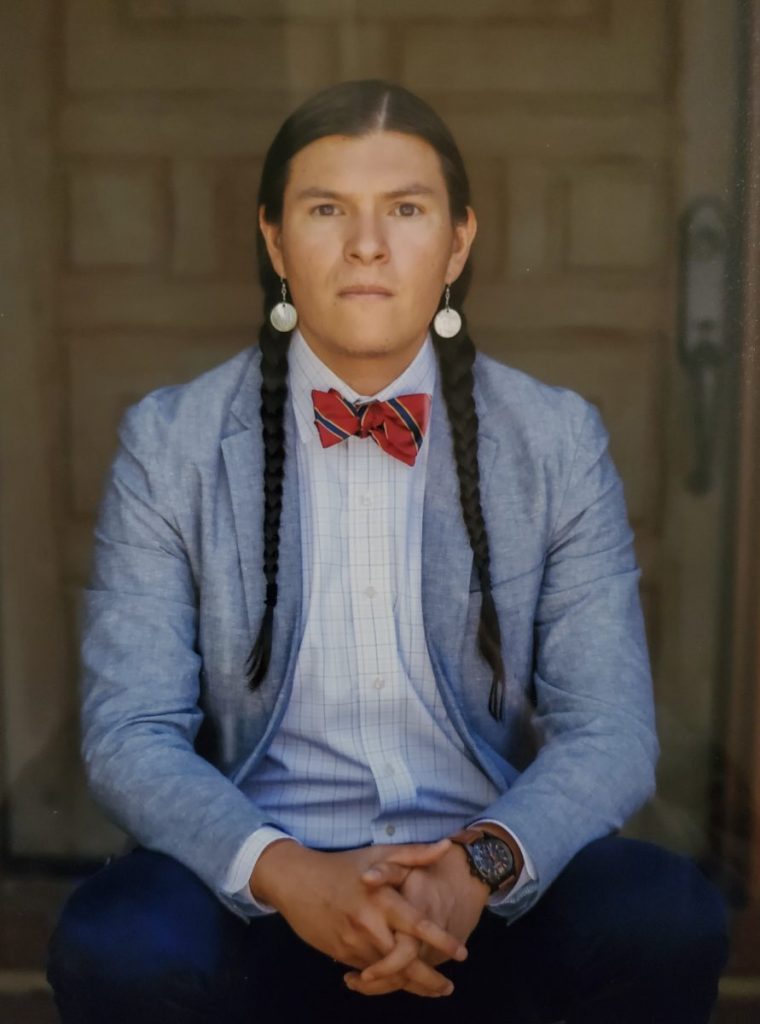
James Buckser
Staff writer
Michael Barthelemy Jr. is the superintendent of the Mandan, Hidatsa and Arikara (MHA) Nation Tribal Park in New Town, North Dakota, one of only a few tribal national parks in the country. The park, still in its infancy, is part of what Barthelemy said is a trend of the Department of the Interior moving toward Indigenous people managing their own lands.
“Like never before in our history have we really been afforded this opportunity to recreate,” Barthelemy said. “It’s a huge opportunity, and it’s very telling of where we sit economically, and so it’s been a really interesting watershed moment.”
Barthelemy will speak at 2 p.m. today in the Hall of Philosophy as a part of Week Seven of the Interfaith Lecture Series with its theme of “Nature as Sacred Space.”
With an academic background in history, Barthelemy worked as the tribal archivist before becoming park superintendent.
“I was the archivist and the historiographer, and this really wonderful opportunity arose to be superintendent of this newly created tribal park,” Barthelemy said. “I really jumped at the opportunity.”
The park is working in collaboration with the local community, the National Park Service and others on its foundational documentation, a trail system, and establishing road crossings and thoroughfares.
“There’s a lot of moving pieces, there’s a lot of components,” Barthelemy said. “We’re really new, but when you’re new in a position like this, you have to play very many different roles.”
In addition to his work with the park, Barthelemy is the president of Hiraaca Maa Aru Caawi, an organization working to bolster speakers of the Hidatsa language, which has very few native speakers. While Bathelemy said the situation was “dire in some respects,” it was also positive, with many young people wanting to get involved.
“It might seem daunting from an outsider perspective,” Barthelemy said. “But when you actually work within community, when you see the people who are active within community working on language, it gives you a really positive feeling that we’re moving in the right direction.”
Barthelemy’s talk will focus on the ways Indigenous ideas of nature differ from Western ideas, and some misconceptions about Indigenous culture.
For example, regarding the idea of nature as a sacred space, and “people experiencing these spaces as like, wild spaces,” Barthelemy said he’s “breaking against” that notion.
“For Indigenous people, these are homelands,” Barthelemy said. “When you talk about public lands, you have to talk about the Indigenous story, you have to talk about the Indigenous narratives.”
In addition to Indigenous ideas of sacredness, Barthelemy’s talk will include discussions of personal relationships with the environment, nodal travel of Indigenous groups, and Indigenous perception of nature.
“Everything is embedded within the landscape, and the landscape has worked to change us, to form us,” Barthelemy said. “We come to this situation now where we’re invited to share our perspectives, and we’re really trying to get people to understand us and where we’re coming from, and why we see the world in the way that we see it.”
Barthelemy said the biggest thing he wants attendees to take away from his talk is a newfound appreciation for the Indigenous perspective and the way that they themselves experience space.
“I hope that I’m successful in sharing that perspective, and really illuminating people’s understanding of Indian Country, eliminating people’s understanding about Indigenous space, the idea that Indigenous people are carrying on these attributes of resilience and adaptability, and even dispelling some of these myths around American Indians,” Barthelemy said.
While this topic is expansive, and Barthelemy said he will have to watch his time, he is glad to be bringing his perspective to Chautauqua.
“Within our own Indigenous community, these are conversations we have all the time. We have these conversations about Indigenous space, we have these conversations about connectivity with the environment, kinship with the environment,” Barthelemy said. “It’s going to be really great to share those perspectives with this multi-generational audience.”




